The Democratic Republic
of Congo (DRC)
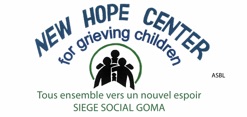

Welcome | About Us | History | Our Team | Projects | The Children | Partners | DR Congo | News and Updates | Contact or Donate
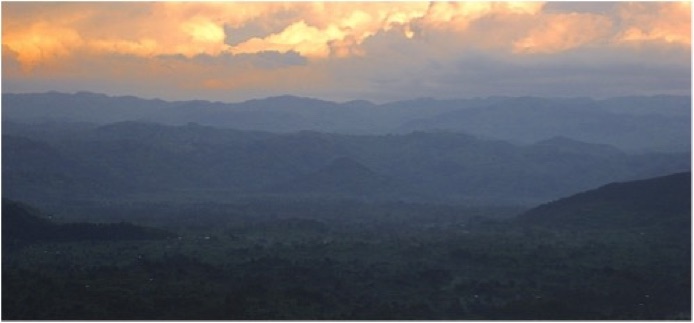
With its 70,916,439 people, the Democratic Republic of Congo (DRC) is the 18th largest country in the world by population. It is the 12th largest country by area with 2,344,858 square kilometers. If you lived in the DRC instead of the USA, you would die 23.51 years sooner (average life expectancy 54.73 years versus 78.24 years) and you would make 99.35% less than in the US ($300 per year versus $46,400 per year).
The War in the Congo
The War, which began in 1998, is the world’s deadliest conflict since World War II, killing 5.4 million people since 1998. The War is sometimes referred to as the “African world war” because it involved nine African nations and some twenty armed groups. Despite the signing of peace accords in 2003, the fighting continues in the east of the country. Rampbant rebel groups continue to kill, rape, steal, torture, and burn residents’ homes. Many children have been born into violence and do not know their parents, others flee their communities and remain internally displaced for years.
People fleeing the rebels, carrying what they can.
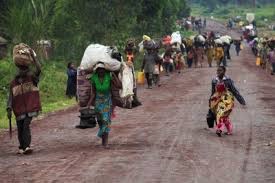
In Eastern Congo, the prevalence of rape and sexual violence is described as the worst in the world. A declaration of peace was signed on December 12, 2013 between the Congolese government and the M23 rebels. The M23 are the latest incarnation of ethnic Tutsi-led fighters who have battled the DRC Government in the mineral-rich eastern region for more than two decades. There are many such rebel groups operating in this region. It will be many years before a lasting peace is achieved and the Congo can begin to rebuild its institutions and infrastructure.
That figure, 5.4 million people, is incredibly hard to comprehend. According to a report by the Head of the UN Office for the Coordination of Humanitarian Affairs, the number of victims is equivalent to a "Tsunami each month, year after year for six years." In addition, apart from the dead, the United Nations declared that this war has caused "the most catastrophic humanitarian situation in the world.” Twelve hundred people continue to die every day as a result of the conflict; almost half of these are children under the age of 5.
All these deaths are not just from bullets or exploding shells; over 1,000,000 people — at one time or another — had to flee their homes and villages. They have lost their food, shelter and access to medical care. Many people have died from accidents, disease, war-related injuries (rape, untreated wounds), poor nutrition and hygiene, and unsafe conditions in squalid camps for Internally Displaced People, or IDP.
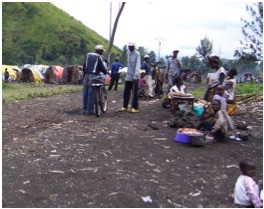
A camp for internally displaced people (IDPs) outside of Goma. The camps are crowded and lack even basic necessities.
Orphans in the DR Congo
As a result of the war, genocide, violent deaths, AIDS, malaria and other diseases, accidents, murders and suicides, there are now thousands of orphans in the DRC. Many don’t have clothing and shoes. They don’t have enough to eat. Many live in the bush or in camps for displaced people and don’t have the chance to go to school.
They are also grieving their loved ones and traumatized because of what they have been through and seen. Often they are accused of being the cause of the death of the family member so some are afraid of caring for an orphan.
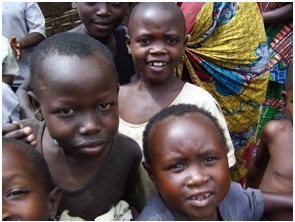
Children who don’t get support on their grief journey often turn to drugs, alcohol, sex, violence, and crime later on in life. Some become child soldiers. Many end up with depression (which can lead to suicide), physical problems and problems in their relationships. They drop out of school and stop dreaming about a bright future.
There are many organizations working to help provide children with material things, medical care, etc., which is crucial. However there is a great need to give children a safe place where to grieve and heal from their trauma. The results we have seen over the years have been very positive.
We at New Hope Center believe that grieving children, many of whom are orphans, need to be part of the society and not be put aside in an orphanage or a school by themselves. especially if they still have some family. Doing so would only emphasize that they are no use to the society. As we help these children today, the entire country will one day benefit from the services that the children will offer back to it. They are the hope for Africa’s future, and they’ll make a difference.